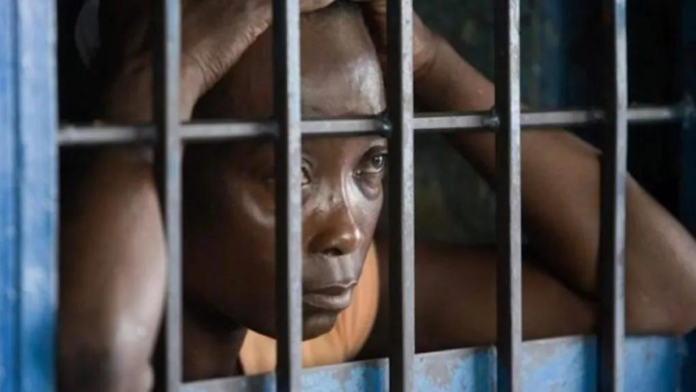THE recent release of the National Bureau of Statistics (NBS) report on Women and Men in Nigeria 2022 brings to light a troubling trend: the rising number of female inmates in Nigerian Correctional Centres (NCC). The percentage of females admitted into the Nigerian Correctional Centre increased by 4.82 percent in 2022, following a slight dip from 4.90 percent in 2020 to 4.48 percent in 2021. This resurgence underscores a significant social issue that demands urgent attention from the Nigerian government and society at large.
The presence of young females and women in these centres has profound implications for society. Women are often the backbone of family units, and their incarceration disrupts family structures, leading to a cascade of socio-economic issues. Children of incarcerated mothers, for instance, are more likely to face instability, poor academic performance, and psychological challenges. The impact extends beyond the immediate family, affecting community cohesion and social harmony.
Several factors contribute to the increasing number of female inmates. Socio-economic pressures play a crucial role; as economic hardship can push women towards criminal activities as a means of survival. The breakdown of family values and societal support systems further exacerbates the situation, leaving women vulnerable to negative influences and criminal behavior.
The Nigerian government must adopt a multifaceted approach to address this issue. Firstly, economic empowerment is key. Women need access to gainful employment and economic opportunities to deter them from engaging in criminal activities. This requires investment in education and vocational training programs that equip women with the skills necessary to secure sustainable livelihoods. By creating an environment where women can thrive economically, the government can reduce the likelihood of women resorting to crime.
Furthermore, the government should implement policies that focus on rehabilitation rather than punishment for minor offenses and first-time offenders. Community service and alternative sentencing options, such as probation and parole, can serve as more effective deterrents while allowing women to remain integrated within their communities. This approach not only reduces the population of inmates but also promotes restorative justice, enabling offenders to make amends and reintegrate into society more effectively.
The role of the family and community cannot be overstated. Strengthening family values and support systems is crucial in preventing women from engaging in criminal activities. Parents and guardians must instill moral values and provide guidance to young girls, steering them away from negative influences. Community programs that focus on mentorship and support for at-risk women can also play a significant role in preventing crime and reducing recidivism.
Religious and community leaders have a pivotal role to play in this regard. Religious institutions can provide moral guidance and support to young women, helping to instill values that deter criminal behaviour. Community leaders can advocate for and implement programs that support women, such as counseling services, educational initiatives, and employment opportunities. By fostering a supportive community environment, the risk of women engaging in criminal activities can be significantly reduced.
Moreover, addressing the root causes of crime is essential. The government must tackle the socio-economic disparities that drive women to crime. This includes addressing issues such as poverty, lack of access to education, and unemployment. By investing in social welfare programs and creating opportunities for economic advancement, the government can alleviate the pressures that push women towards criminal activities.
Another critical area that requires attention is the system itself. The conditions in Nigerian correctional centers are notoriously harsh, with overcrowding, inadequate healthcare, and poor sanitation. These conditions are particularly detrimental to female inmates, who have specific health and hygiene needs. Improving these conditions and ensuring that female inmates have access to adequate healthcare and sanitary facilities is essential for their well-being and rehabilitation.
Rehabilitation programs within prisons must also be enhanced. Educational and vocational training programs can equip female inmates with the skills needed to reintegrate into society upon release. Psychological counseling and support services are equally important in addressing the trauma and mental health issues that many female inmates face. By providing comprehensive rehabilitation services, the prison system can help reduce recidivism and support the successful reintegration of female inmates into society.
In conclusion, the rising number of female inmates in Nigerian prisons is a pressing issue that requires immediate and comprehensive action. The Nigerian government, in collaboration with communities, religious leaders, and policymakers, must address the socio-economic factors that drive women to crime. The society is not whole without women free in the society, and their freedom and empowerment are essential for the overall well-being and progress of the nation.


